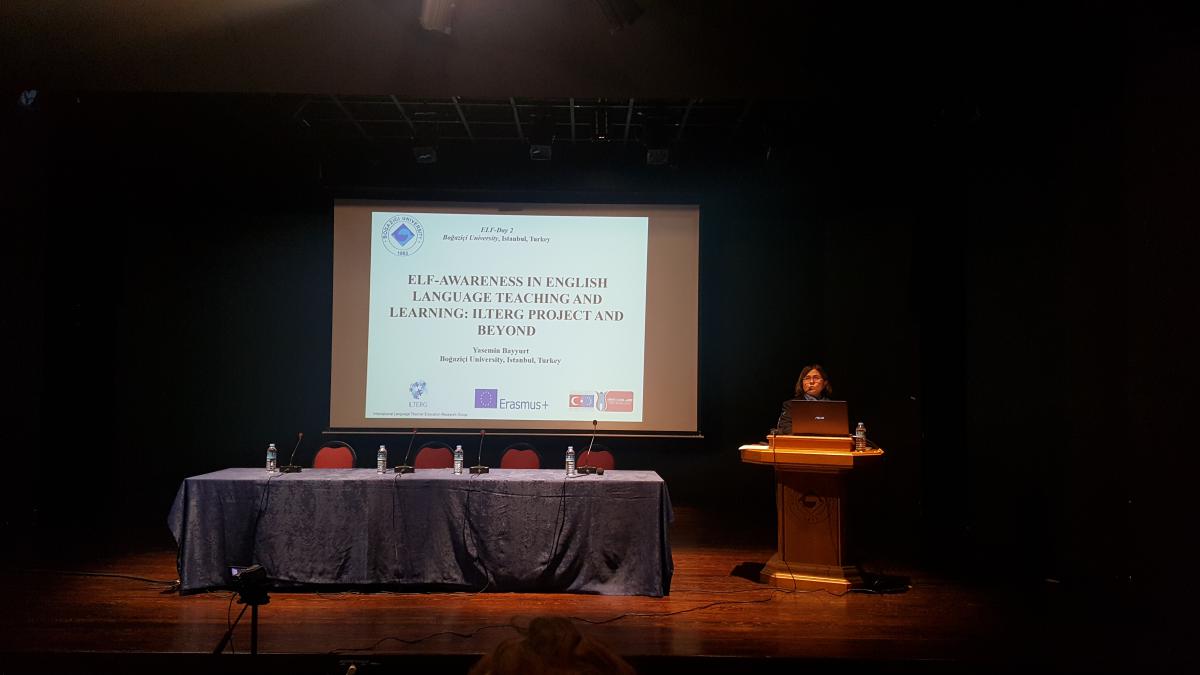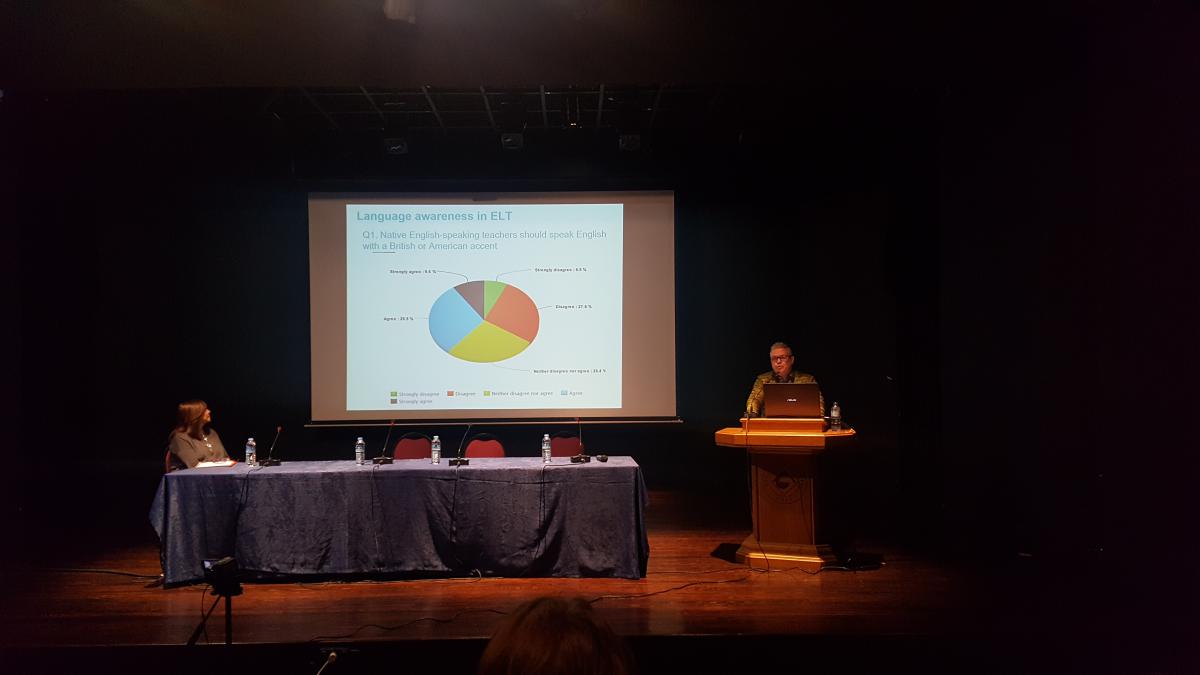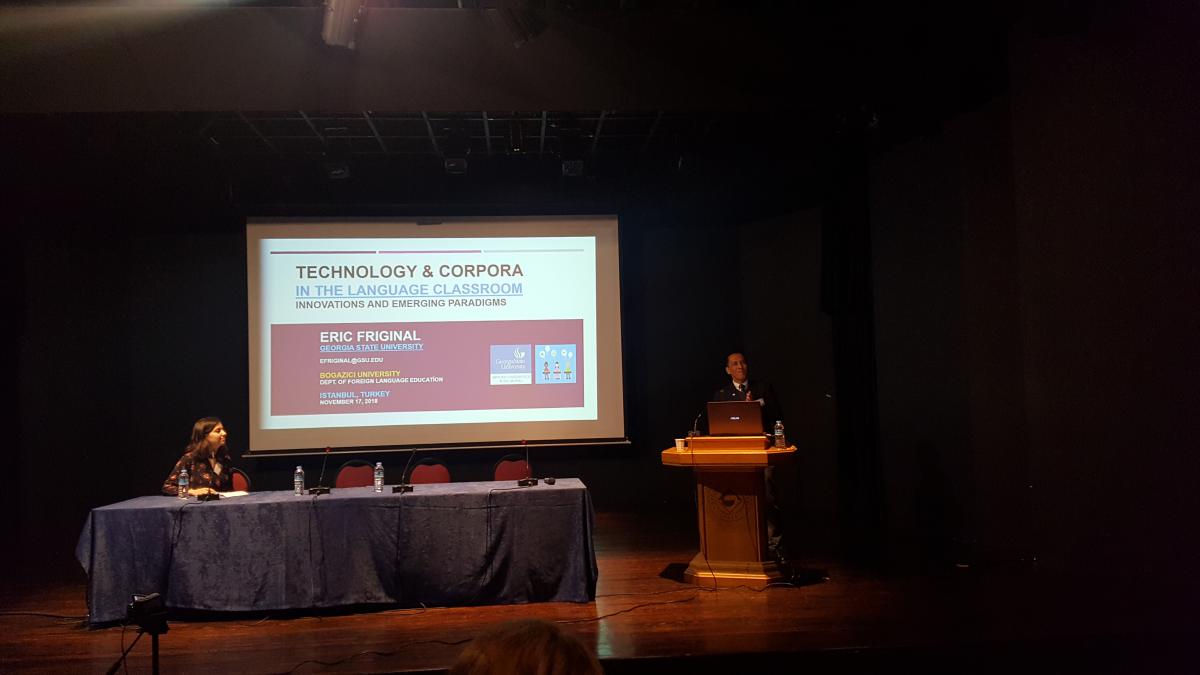International Language Teacher Education Research Group
INTERNATIONAL LANGUAGE TEACHER EDUCATION RESEARCH GROUP
ENGLISH AS A LINGUA FRANCA (ELF) – DAY SERIES 2
BOĞAZİÇİ UNİVERSİTESİ, NOVEMBER 17, 2018
by
AKIF CAL
The theme of the event was English being used more as a lingua franca around the world now more than as a foreign or second language. The basic definition of English as a lingua franca suggests that English is used as a means of communication between people coming from two or more different linguistic backgrounds. This view encourages teachers and students to appreciate the fact that English is mostly used by non-native speakers around the world and this fact has brought about the term “World Englishes” to appear, a term that Microsoft Word does not recognize and mark in red as I write this entry.

The event started with Prof. Yasemin Bayyurt’s presentation on “Elf-Awareness in English Language Teaching & Learning”. Prof. Bayyurt talked about what English and knowledge of English mean in the modern world and the fact that it has a constantly changing structure. She talked about ELF-awareness and listed its three major components, which are:
1.Awareness of language and language use: this involves an engagement with language, with knowledge of the syntactic, morphological, lexical, phonological, pragmatic and sociocultural features of English produced by non-native speakers both inside and outside the ELT classroom.
2.Awareness of instructional practice: This awareness has relevance for teacher-centered practice, it revolves around what teachers do and do not do in the ELT classroom. Teachers have personal theories about instruction, corrective feedback and catering for learners’ needs that they apply in their classrooms.
3.Awareness of learning: This component is about the relationship between ELF communication and its use and learning. English is a part of day-to-day interactions, online or offline in many parts of the world now and it involves both native and non-native users. This fact makes it more than a foreign language for many non-native users in our times.

The second presentation was given by Luis Guerra from Universidade de Evora and it was titled “Teachers’ attitudes and materials assessment: promoting towards and ELF-aware pedagogy”. Prof. Guerra presented a research study that focused on what teaching English as a Lingua Franca meant for language teachers, by referring to three main points:
1.Exposure to and familiarity with a large stock of native and nonnative varieties and cultures
2.Developing learners’ competence in using English for cross-cultural / cross-linguistic communication
3.Native speaker target vs. mutual intelligibility
He reviewed questions asked in a survey to ELT teachers about promoting intercultural awareness in the classroom and suggested that survey data showed that although participants were open to promoting intercultural awareness in the classroom, they were still hesitant to include references from nonnative speaker cultures in their lessons and materials. The materials that they analyzed seemed to overlook an ELF-based approach and mostly neglected the international scope of English and of its uses and users. Finally, he touched upon the lack of open, inclusive and critical activities and materials, which exemplify real communicative exchanges language users will come across outside the classroom.
To finish his presentation, Prof. Guerra showed online resources that are available to teachers that would help promote an ELF-based approach in their teaching by referring to different Audio-Visual tools, online archives, Web 2.0 Apps, Digital Media platforms and several academic books.

The last session was given by Prof. Eric Friginal from Georgia State University on Technology & Corpora in the Language Classroom; Innovations and Emerging Paradigms. Prof. Friginal started his talk with the components of English language pedagogy and how computer technology and new media fit into the diagram. He referred to students in today’s language classroom as “digital natives” and asked if we, as language teachers are “digital natives” or “digital immigrants”. He promoted the idea that our students have changed radically and our pedagogy should also change equally well to address the needs of the “digital natives”. He stressed the importance of meaningful integration of technology and personalized learner-centric experiences into the teaching programs. Prof. Friginal also shared the criteria for evaluation of Tech-Based Resources to be used in the language classroom developed by Chapelle & Jamieson in 2010. He very specifically mentioned the use of corpus linguistics as a valuable tool to assist language teachers. The idea is to help teachers have access to a large, principled collection of “natural” occurrence of language stored on computer, which would represent target language varieties or registers. This has benefits for language teachers to exemplify how speakers and writers across various demographics or registers actually use the vocabulary and grammar in a language. This is important because this data will give us contextual knowledge, how language is used in different contexts that would enable our learners to fully understand and use the target language successfully across contexts. Practical implications of Prof. Friginal’s talk were related to which grammatical features to include in a lesson (or book) and which to exclude, the order of topics, specific words or examples to include when illustrating a grammatical feature and identifying features and words that are common.
